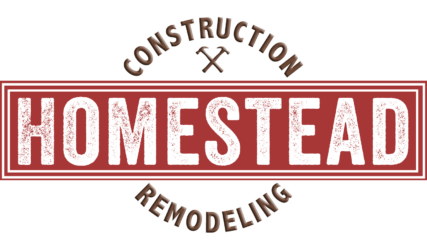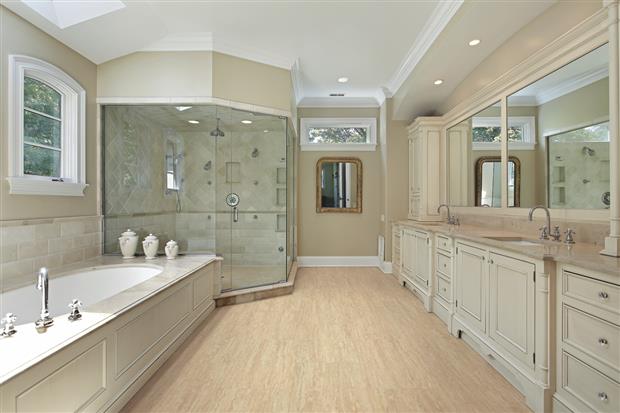The bathroom is more than just a functional space; it’s a personal retreat where you start and end your day. Whether you’re looking to update outdated fixtures, improve functionality, or create a spa-like sanctuary, a bathroom remodel can enhance the beauty, value, and comfort of your home. This comprehensive guide will walk you through the key aspects of planning and executing a successful bathroom remodeling project.
Why Remodel Your Bathroom?
Before diving into the specifics, it’s essential to understand why bathroom remodeling is worth the investment:
- Increase Home Value: A modern, updated bathroom can significantly boost your home’s resale value.
- Enhance Functionality: Tailoring the layout to your needs can improve the flow and usability of the space.
- Improve Energy Efficiency: Upgrading to water-saving fixtures and energy-efficient lighting reduces utility bills.
- Create a Personal Oasis: Remodeling allows you to design a bathroom that reflects your style and provides relaxation.
Step 1: Plan Your Bathroom Remodel
Successful remodeling begins with a well-thought-out plan:
- Set a Budget: Determine how much you’re willing to spend. Allocate funds for materials, labor, and unexpected expenses.
- Define Your Goals: Identify what you want to achieve—more storage, improved lighting, a luxurious feel, or all of the above.
- Measure Your Space: Accurate measurements help in planning the layout and selecting fixtures.
- Hire Professionals: Consult with contractors or designers to ensure your vision is feasible and meets local building codes.
Step 2: Choose a Design Style
Your bathroom’s design should harmonize with your home’s overall aesthetic. Here are some popular styles to consider:
- Modern: Clean lines, neutral colors, and minimalistic features create a sleek look.
- Traditional: Classic elements like ornate fixtures and timeless tiles offer a sophisticated charm.
- Farmhouse: Rustic touches like shiplap walls, wooden accents, and vintage-inspired hardware bring warmth.
- Industrial: Exposed pipes, concrete elements, and metal finishes deliver an edgy vibe.
Step 3: Prioritize Layout and Functionality
A functional layout is crucial for a successful remodel:
- Optimize Flow: Ensure there’s enough space for movement and storage.
- Consider Plumbing: Reconfiguring plumbing can be costly; try to keep fixtures like the toilet and sink in their original locations.
- Add Storage: Include cabinets, shelves, or built-ins to maximize space and reduce clutter.
- Plan for Accessibility: Consider future needs by incorporating universal design features like grab bars or a curbless shower.
Step 4: Select Fixtures and Materials
Choosing the right fixtures and materials can elevate your bathroom’s look and durability:
- Bathtubs and Showers: From freestanding tubs to walk-in showers with rain showerheads, pick what suits your lifestyle.
- Vanities and Sinks: Opt for stylish yet practical options with ample storage.
- Tiles and Flooring: Durable, water-resistant materials like ceramic, porcelain, or natural stone are ideal.
- Lighting: Layered lighting—task, ambient, and accent—creates a well-lit space.
Step 5: Upgrade Plumbing and Electrical Systems
Modernizing your plumbing and electrical systems ensures safety and efficiency:
- Install Low-Flow Fixtures: Save water with eco-friendly toilets, faucets, and showerheads.
- Update Wiring: Add outlets for grooming tools or smart technology like heated floors.
- Ensure Proper Ventilation: A high-quality exhaust fan prevents moisture buildup and mold.
Step 6: Add the Finishing Touches
Details make all the difference in a bathroom remodel:
- Accessorize: Add mirrors, towel racks, and decorative items that align with your theme.
- Use Color Wisely: Neutral tones create a calming atmosphere, while bold accents add character.
- Incorporate Greenery: Plants like ferns or orchids thrive in humid environments and add a touch of nature.
Common Bathroom Remodeling Mistakes to Avoid
- Skipping Ventilation: Poor ventilation leads to mold and mildew issues.
- Overlooking Storage: Insufficient storage results in a cluttered appearance.
- Ignoring Lighting: A single light source creates shadows; invest in layered lighting.
- Blowing the Budget: Stick to your financial plan to avoid overspending.
FAQs About Bathroom Remodeling
- How long does a bathroom remodel take?
- On average, 3 to 6 weeks, depending on the project’s complexity.
- Do I need a permit for bathroom remodeling?
- Permits are required for major changes like plumbing or electrical updates. Check with local authorities.
- What’s the average cost of a bathroom remodel?
- Costs range from $5,000 to $25,000, depending on the size and scope.
Conclusion
Bathroom remodeling is an investment in comfort, functionality, and style. By carefully planning each step—from setting a budget and choosing a design to selecting materials and fixtures—you can create a space that reflects your personality and meets your needs. With the right approach, your bathroom can become a beautiful, functional retreat that you’ll enjoy for years to come.

